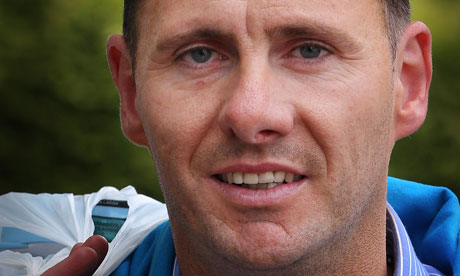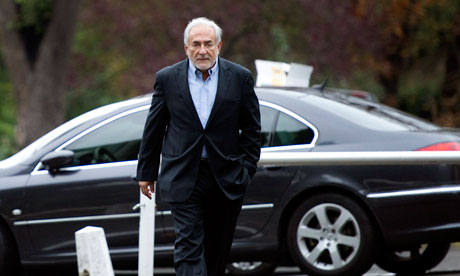10. São Paulo-Guarulhos International, São Paulo, Brazil

Whether it's 9 a.m. or 9 p.m. this airport experiences round-the-clock rush hour.
Because, shockingly enough, it turns out that corporate medal ceremonies aren’t always in sync with what people are thinking when they're standing in two-hour immigration lines, suffering routinely unannounced gate changes and paying through the teeth for a stale Brazilian cheese roll and beer inside an understaffed and over-aged aviation facility.
In a country where flight delays (departing or arriving) are just part of the deal, some recent numbers would give pause to the most unflappable traveler at Brazil’s largest airport.
Just 41 percent of all flights leave on time. Only 59 percent of flights arrive on schedule, according to Forbes.
São Paulo-Guarulhos has announced plans to add runways and terminals -- what airport hasn’t? -- but with nearly 30 million passengers traipsing through every year (the figure has reportedly doubled in under a decade) the urgency is palpable and, sadly enough, unsolved by upping prices at musty duty-free shops.
But does this really constitute bronze medal status? When the best unofficial advice for surviving Brazil’s pin-up airport is to try and learn a little Portuguese and not lose your temper, something’s gotta give.
Read more on CNNGo: World's biggest airport planned
9. Perth Airport, Perth, Australia

Kick a dog while it's down: The Qantas strike didn't help PER's reputation.
But while the big guns in Sydney, Melbourne and also-rans in Darwin, Cairns and Hobart get routinely lambasted for various inefficiencies and rip-off tactics, passengers in Western Australia have a special place in their spleens for Perth.
“The only advantage over some other airports is the lack of nearby combat,” notes one of several miffed passengers on airportquality.com.
With a reviled pair of domestic terminals (home of two-hour taxi-line queues, atrocious check-in lines, overpopulated gates and meager lounges) and a slightly more palatable international terminal five kilometers away, Perth’s brittle facilities can be overwhelmed just by a trio of aircraft arriving within 20 minutes of each other.
Now that an ambitious “billion-dollar” redevelopment project has been significantly scaled back, who would ever want to leave Changi for this place?
Read more on CNNGo: Transit hotels: How to get to sleep during your stopover
8. Tribhuvan International, Kathmandu, Nepal

Don't look the officers -- or the dogs -- in the eye.
Some airport improvements have been underway for the Visit Nepal 2011 tourism campaign, including things most passengers don’t much care about (e.g., the new helicopter base).
The most serious beefs with Nepal’s only international airport revolve around its primitive yet officious check-in procedure, starring a roulette wheel of underpaid security agents.
“Departure is an endless game of body searches and silly questions,” notes one passenger.
“Those who didn’t have their e-tickets printed out had to argue their way in,” says another, who was checked seven times and scolded for not having a baggage tag on a carry-on before eventually boarding.
Never mind. The city’s markets and surrounding mountains are lovely.
7. John F. Kennedy International, New York, United States

Fans flooded the airport to welcome the 1964 British Invasion, but it seems they never left.
But, nah, JFK really couldn’t really care less.
Every year, more than 21 million passengers stumble through worn, mid-century terminals that peaked when The Beatles arrived in the United States and rooftop parking was all the rage; JFK proudly remains the world’s busiest international air gateway.
So if you’re not into a dim, surly, unbearably congested airport reeking with attitude and unapologetically long immigration lines -- good riddance.
“JFK had a piece of my luggage sitting in a little detention room for bags -- for over a year,” notes one passenger. “No one noticed it was there, until finally an observant Air France employee wondered what the dusty little green bag in the corner was.”
Read more on CNNGo: Secret Report: Singapore's Chiangi Airport world's favorite
6. Jomo Kenyatta International, Nairobi, Kenya

Can't be disappointed if you're not expecting much.
This is the common refrain among travelers through JKIA, who either don’t have the heart or the expectations to give this dated aviation facility the kind of pounding reserved for the JFKs and Charles de Gaulles of the world.
Saddled with a 1958 blueprint designed for 2.5 million passengers, JKIA receives close to twice that many. Hence the airport’s 2005, Three Phase, US$100 million expansion project which has seen long delays (something about the rain) and has been spinning its tires somewhere in Phase Two for the last few years.
For now, that means business as usual: cramped spaces; long lines; inadequate seating; frequent power outages; tiny washrooms hiding up several flights of stairs; shabby duty free shops; overpriced food outlets; and business class lounges worthy of a shelter in mid-city Los Angeles.
Sure, it’s a breeze compared to Lagos. But it could be so much better. The confusing result: grateful disappointment?



 Gaga may once again have offended the pious as she emerged as a decapitated corpse from a confession box, and that too with a crucifix in the background. No doubt the elaborate attire came off as she began to perform and came to a more natural avatar of fishnet stockings and a black lace bodice.
Gaga may once again have offended the pious as she emerged as a decapitated corpse from a confession box, and that too with a crucifix in the background. No doubt the elaborate attire came off as she began to perform and came to a more natural avatar of fishnet stockings and a black lace bodice.














